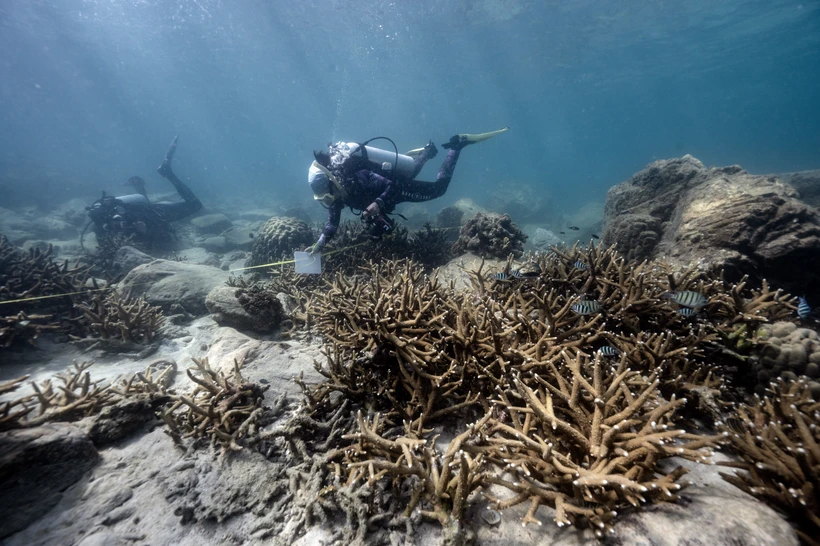Although it is currently the tourist season, Pling Island in Southern Thailand has been closed since May 9 to allow the natural environment to have more time to recover after the discovery of extensive coral bleaching.
 |
| Coral off the coast of Samae San Island in Thailand's Chonburi Province (Photo: AFP/VNA) |
Although it is currently the tourist season, Pling Island in Southern Thailand has been closed since May 9 to allow the natural environment to have more time to recover after the discovery of extensive coral bleaching.
Bleaching, which occurs when algae that live inside corals is expelled, is usually caused by higher than normal ocean temperatures and increased ultraviolet radiation. Corals can recover from bleaching over time once temperatures fall and conditions in the ocean return to normal.
According to the Thai Department of National Parks, Wildlife and Plant Conservation (DNP), Pling Island and the coral reefs around Sirinart National Park in Phuket will be temporarily closed due to extensive coral bleaching caused by rising seawater temperatures.
The department is also monitoring coral bleaching at other national parks in many areas in southern Thailand.
The closure comes after a deadly heatwave caused temperatures to soar across Thailand and Asia in recent weeks.
In 2018, Maya Bay, the Thai island made famous by Hollywood film "The Beach", was shut for more than four months to allow its coral and sea life to recover after it was exhausted by hordes of tourists.
VNA








Thông tin bạn đọc
Đóng Lưu thông tin